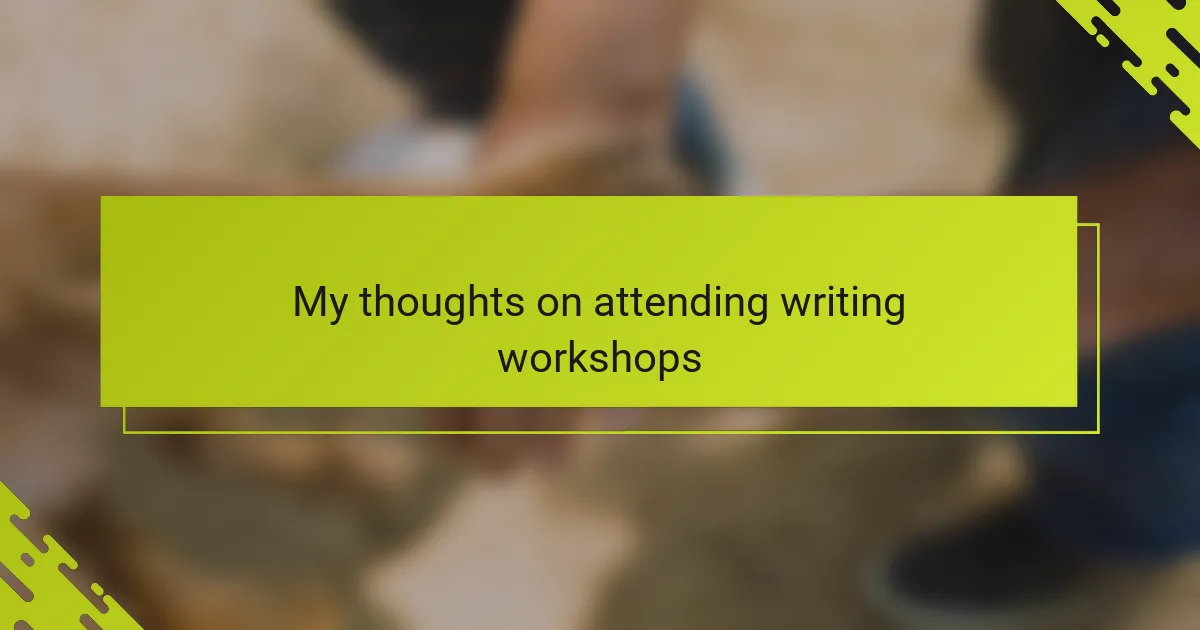Key takeaways
- Writing workshops provide a supportive environment for sharing and critiquing work, fostering both personal growth and community.
- Participants often experience a blend of vulnerability and empowerment as they explore their identities through writing and receive feedback from diverse perspectives.
- Challenges in workshops include navigating the balance between openness and critique, and the need for sensitivity toward varied experiences.
- Active engagement and self-care are essential for making the most of the workshop experience, allowing writers to connect and grow alongside others.
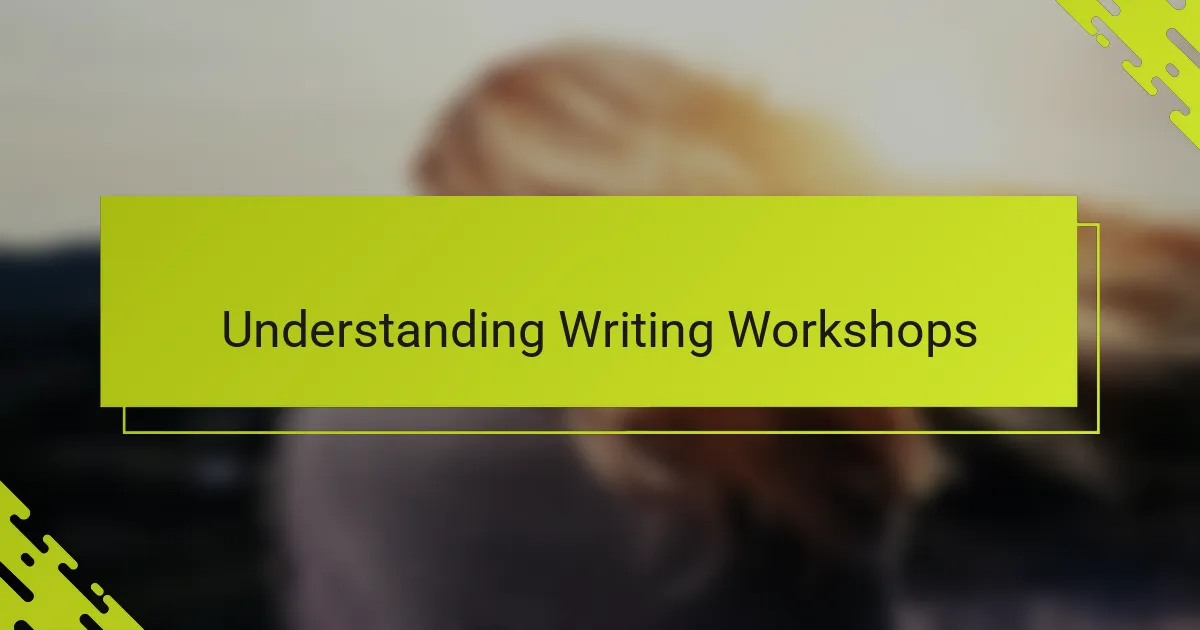
Understanding Writing Workshops
Writing workshops can feel like a mix of excitement and nerves. When I first attended one, I wondered, “Will my voice be heard? Will others truly understand my perspective?” These workshops are unique spaces where writers share and critique work, but also where vulnerability meets growth.
What makes writing workshops so compelling, in my experience, is how they build community. Sitting around a table, listening to others’ stories and feedback, I felt both challenged and supported. It’s not just about perfecting a piece; it’s about discovering new angles and loosening the grip of self-doubt.
Have you ever noticed how hearing someone else’s interpretation can flip your understanding of your own writing? That moment of surprise or clarity has stayed with me time after time. Writing workshops foster those moments, creating a dynamic environment where creativity and identity intertwine in powerful ways.
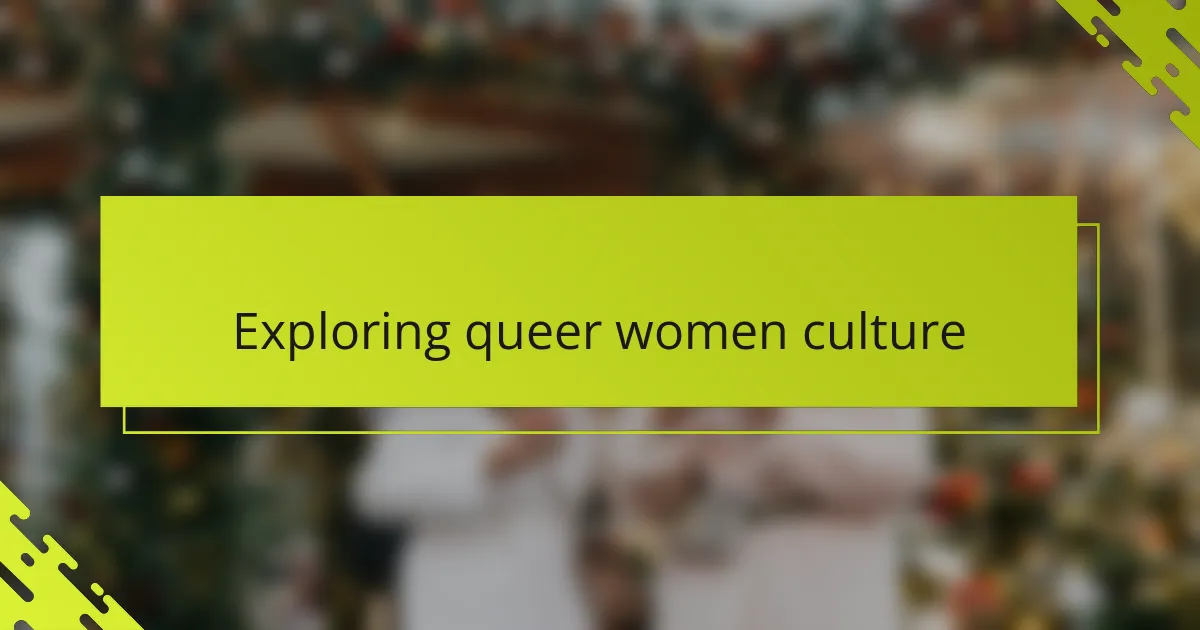
Exploring Queer Women Culture
Queer women culture is a vibrant tapestry woven from diverse stories, experiences, and expressions. When I immerse myself in this community, I’m constantly reminded of the strength and resilience that define it. Have you ever felt the electric pulse of shared identity in a room full of queer women, each carrying their own unique narrative?
What strikes me most is how this culture challenges conventional norms while celebrating authenticity. I recall attending a gathering where the layers of history, activism, and art came alive through conversation and performance. It was a vivid reminder that queer women culture isn’t static—it’s always evolving, shaped by both struggle and joy.
In exploring this culture, I often reflect on the power of visibility and connection. How do these shared experiences influence the way we tell our stories, and how does that storytelling, in turn, affirm who we are? The answer, I’ve found, is in the deeply human exchange that keeps our culture thriving.
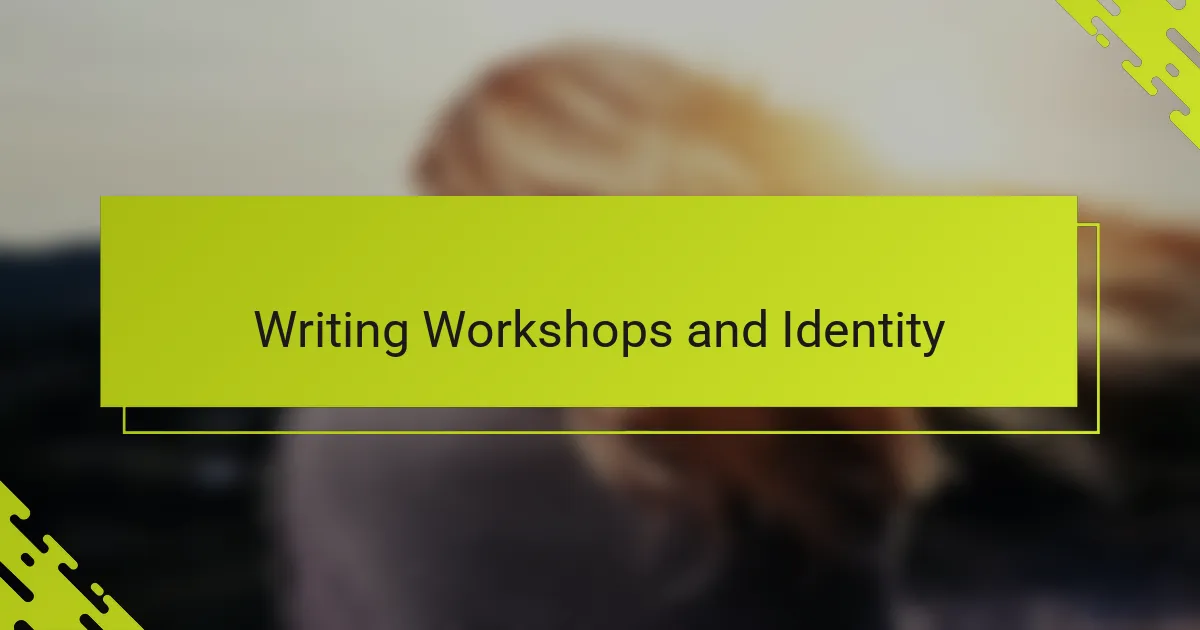
Writing Workshops and Identity
Writing workshops have a way of bringing identity into sharp focus for me. When I share my work, I’m not just offering words — I’m revealing parts of myself shaped by my queer womanhood. Have you ever felt that mix of courage and vulnerability as your identity meets the critical eyes and hearts of others?
I remember one workshop where feedback didn’t just address grammar or structure, but reflected on how my experiences as a queer woman colored the story. That moment made me realize how writing workshops aren’t just about craft; they’re spaces where personal truths surface and get honored. It shifts the whole dynamic from critique to connection.
At times, these workshops also challenge me to rethink what identity means in my writing. How much of myself do I expose? Which stories do I hold back? Wrestling with these questions has made me see writing not only as self-expression but as a way to push boundaries within myself and the broader community.
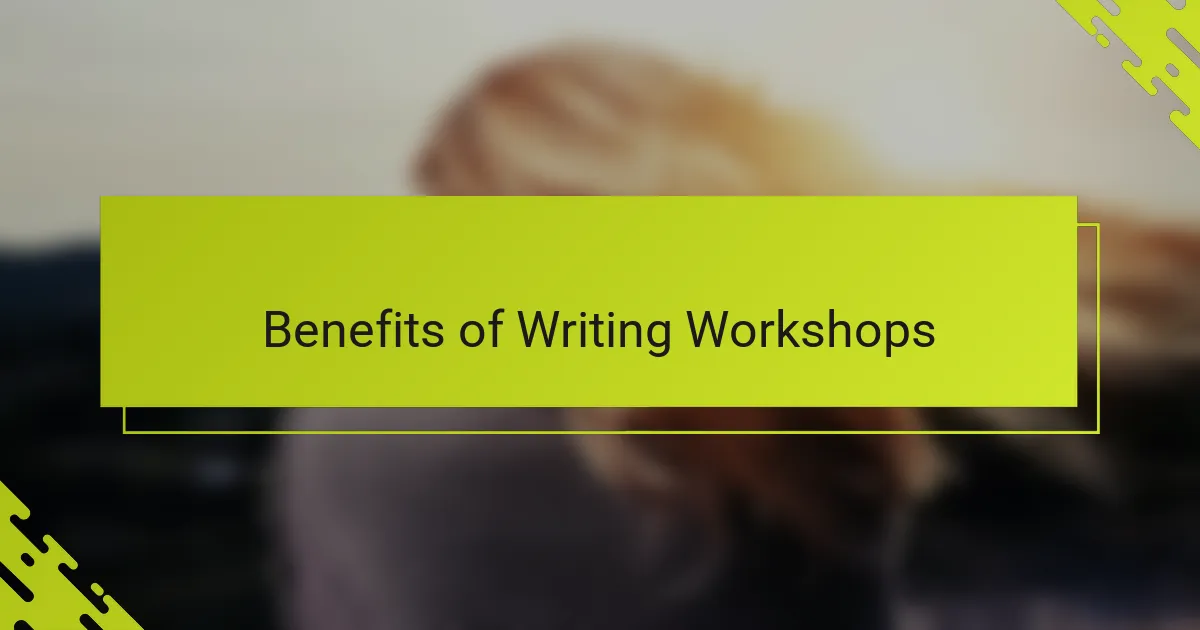
Benefits of Writing Workshops
One of the biggest benefits I’ve found in writing workshops is the chance to receive honest, thoughtful feedback. There’s something invaluable about hearing how others perceive your words, especially when those voices come from diverse queer perspectives. Have you ever been surprised by a comment that opened up a whole new way of seeing your story? Those moments have helped me grow as a writer far beyond what solo editing could achieve.
Writing workshops also create a nurturing space where vulnerability isn’t just allowed but encouraged. I remember feeling hesitant to share pieces that felt deeply personal, but the trust that forms in these groups made it possible to let down those walls. This sense of safety transformed writing from a solitary task into a shared journey, where encouragement and critique dance hand in hand.
Lastly, being part of a workshop often means joining a community of queer writers who understand the nuances of our experiences. That feeling of connection, knowing there are others wrestling with similar themes of identity and expression, is powerful. How often do we get to say, “You see me, and my story matters”? Workshops are places where that acknowledgement happens again and again, fueling both our creativity and our courage.
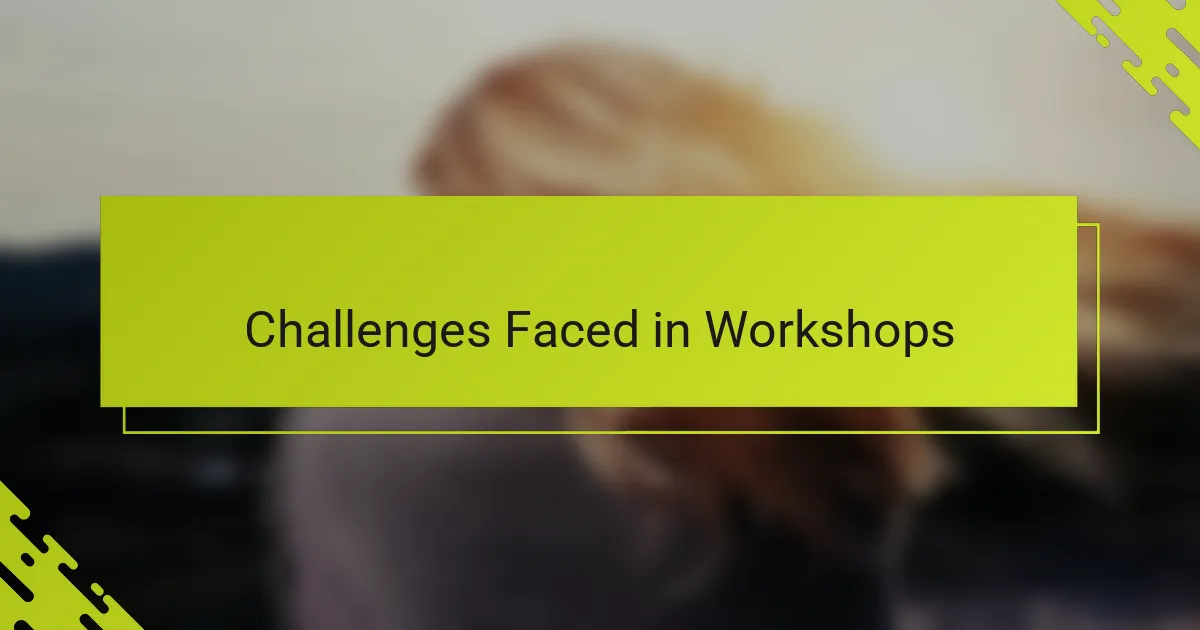
Challenges Faced in Workshops
One challenge I’ve faced in workshops is the uneasy balance between vulnerability and critique. Have you ever shared something so personal, only to wonder if your honesty might be misunderstood or dismissed? That tension sometimes made me hesitate, questioning whether the space was truly safe to explore my queer identity without filtering.
Another difficulty lies in the varied levels of awareness about queer experiences among participants. I recall a moment when feedback unintentionally missed the cultural nuances woven into my story, leaving me feeling unseen rather than supported. It made me realize how crucial it is for workshops to foster not just creativity but also sensitivity and education.
Then there’s the challenge of managing internal doubts amid external input. When so many voices surround your work, how do you decide which advice aligns with your truth? I’ve learned that part of growth in workshops is trusting my own instincts while staying open—and that, honestly, takes practice and patience.
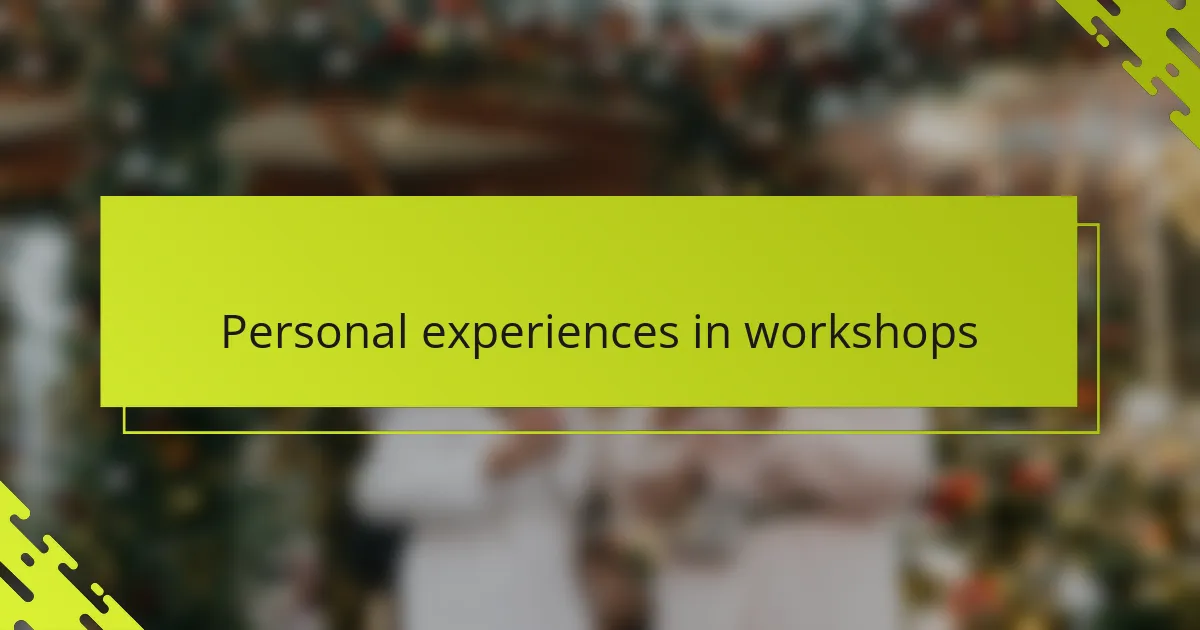
Personal Experiences in Workshops
I remember my first writing workshop vividly — the swirl of nervous energy as I read aloud, wondering if my words would resonate or fall flat. That moment, when a fellow participant nodded in understanding, still feels like a small but profound victory. Have you ever felt that instant connection, where a simple glance says, “I get you”?
Sometimes, in these workshops, I’ve found unexpected encouragement in the quietest feedback. A phrase or a question posed gently by someone else often sparks a new idea or lifts a shadow of doubt lingering over my work. It’s these small instances that have made me realize how personal growth in writing isn’t always loud or dramatic, but quietly persistent.
There was a time when sharing felt almost like baring a piece of my soul, especially given the layers of identity woven into my stories. After a particularly honest session, I walked away feeling both exposed and uplifted, reminded that vulnerability in a supportive space can be one of the greatest gifts a writer receives. Have you ever left a workshop feeling simultaneously fragile and strengthened? That duality has taught me so much about resilience and trust.
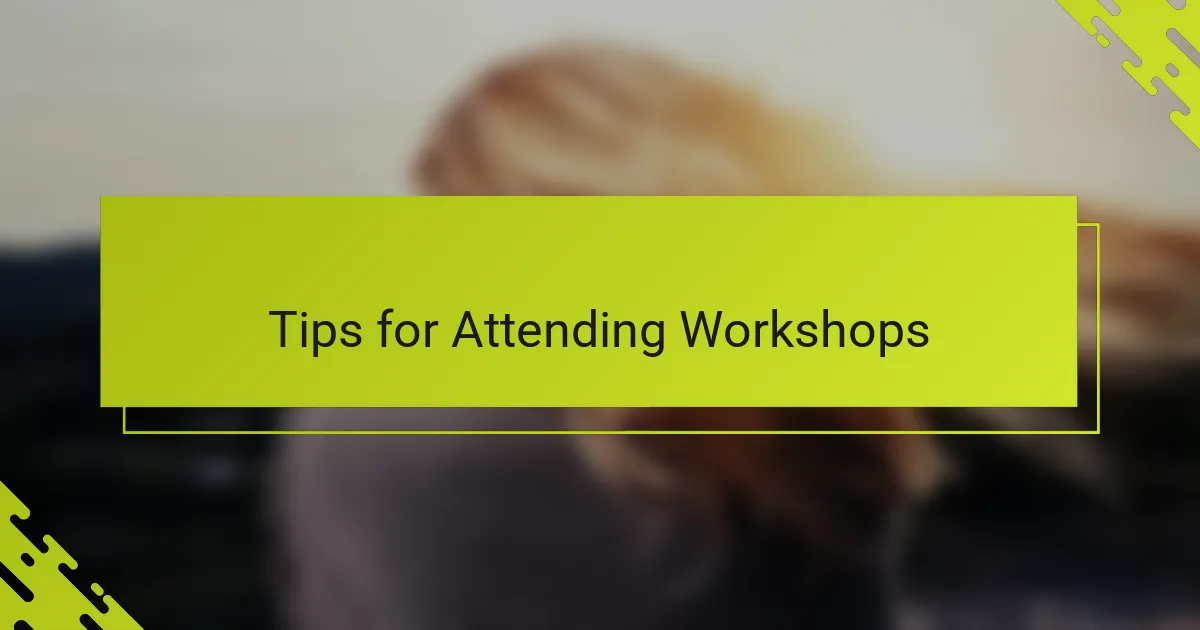
Tips for Attending Workshops
One tip I always keep in mind is to come with an open mind, ready to listen and absorb. Have you ever gone into a workshop expecting a certain type of feedback, only to be surprised by a fresh perspective? I’ve found that leaning into those moments, even when they feel uncomfortable, often unlocks new ways of thinking about my writing and identity.
It’s also helped me to balance sharing with self-care. Workshops can stir up a lot—excitement, doubt, even vulnerability—and knowing when to step back or pace yourself is crucial. I remember once feeling overwhelmed after a session, so I made it a point to journal privately afterward, sorting through my emotions before diving back in.
Finally, engaging actively with the group makes all the difference. Asking questions or offering feedback, even when it feels nerve-wracking, creates a sense of reciprocity. Have you noticed how giving thoughtful responses can deepen your understanding of both others’ work and your own? That exchange nurtures both community and craft in ways solo writing never could.
